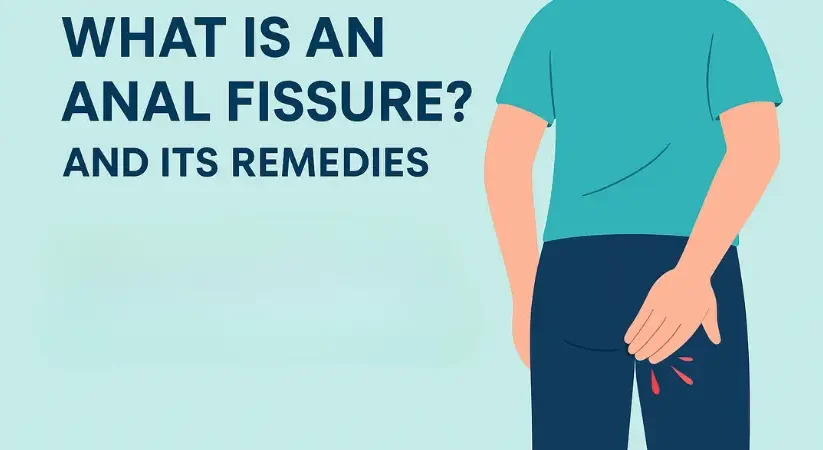Introduction
Some health problems, such as anal fissures, hurt and interfere with the quality of your life. Tiny cracks in the lining of the anus may lead to stinging pain, bleeding, and soreness. Individuals suffer from this, more specifically, while having a bowel movement. Neglecting the issues can intensify the pain and cause difficulties while sitting or walking. Let us discuss the various remedies that are available to alleviate the pain and cure anal fissures successfully.
What is an Anal Fissure?
An anal fissure is a small tear in the lining of the anus. It causes pain, bleeding, and discomfort, particularly during bowel movements. The tear leaves exposed sensitive nerve endings that cause sharp pain and irritation. When the fissure occurs, the muscles in the anus can tighten, preventing healing.
Acute fissures (of less than six weeks duration) heal more quickly, whereas chronic fissures last longer than six weeks and may need medical intervention. Chronic fissures can become even more painful if left unmanaged and can prolong the healing process.
Are Anal Fissures Common?
Anal fissures are common in children and adults. It can also happen in babies. Some research indicates that one in five individuals have anal fissures during their lifetime.
- Anal fissures usually occur because of constipation, straining or passing hard stools.
- Dehydration, chronic diarrhoea, and low-fibre diets can also make you predisposed to get frequent anal fissures.
- Pregnant women and postpartum women are also at higher risk because the anal area is under pressure.
- Individuals with inflammatory bowel disease or reduced blood flow to the rectum also have a higher risk.
What are the Signs of an Anal Fissure?
Anal fissures result in several uncomfortable signs, including:
- Pain: Pain may occur during or after a bowel movement and usually lasts minutes to hours.
- Bleeding: You may find bright red smears on toilet tissue or in the stool.
- Irritation and swelling: The skin may become swollen, sore, or tender.
- Visible tear or crack: In some instances, a small cut can be seen around the anus.
- Itching or burning: Discomfort can build up when sitting for extended periods.
What Does an Anal Fissure Feel Like?
An anal fissure is a sharp, burning pain that you may experience during and after bowel movements. The pain can persist for minutes or hours, depending on the severity.
Less severe fissures cause transient pain and minor irritation, while bad cases bring intense, persistent pain that worsens with movement or pressure.
Some may have a persistent ache and cannot sit easily. The bare nerve endings in the tear increase sensitivity so that every bowel movement causes pain. The pain may become continuous and unbearable if nothing is done about it or if there is an infection underneath.
Conclusion
Anal fissures hurt, but with proper care, they can heal quickly. Proper fibre intake, hydration, and regular bowel habits prevent straining of the anal muscles to prevent fissures. Sitz baths, topical care, Ayurvedic therapies, comfort symptoms, and surgeries help healing in severe cases. Gentle exercise increases circulation and muscle tone, helping recovery. Strict adherence to anal fissure treatment and lifestyle changes prevents recurrence and keeps the anus healthy in the long run. We encourage you to schedule a consultation for Anal fissure , where we offer personalised, effective care based on your unique needs.
Continue reading here learn more about: Anal Fissures and remedies





Comments